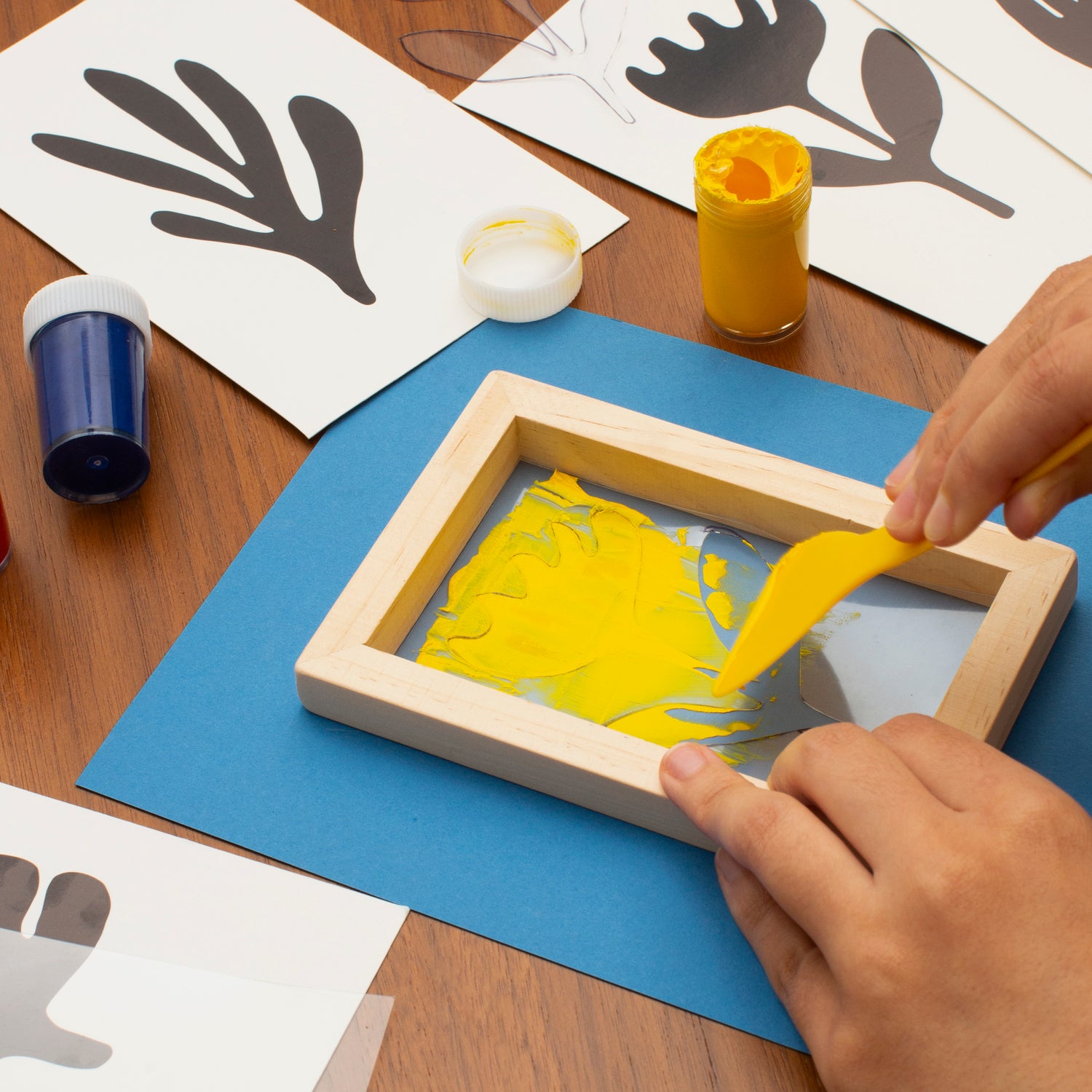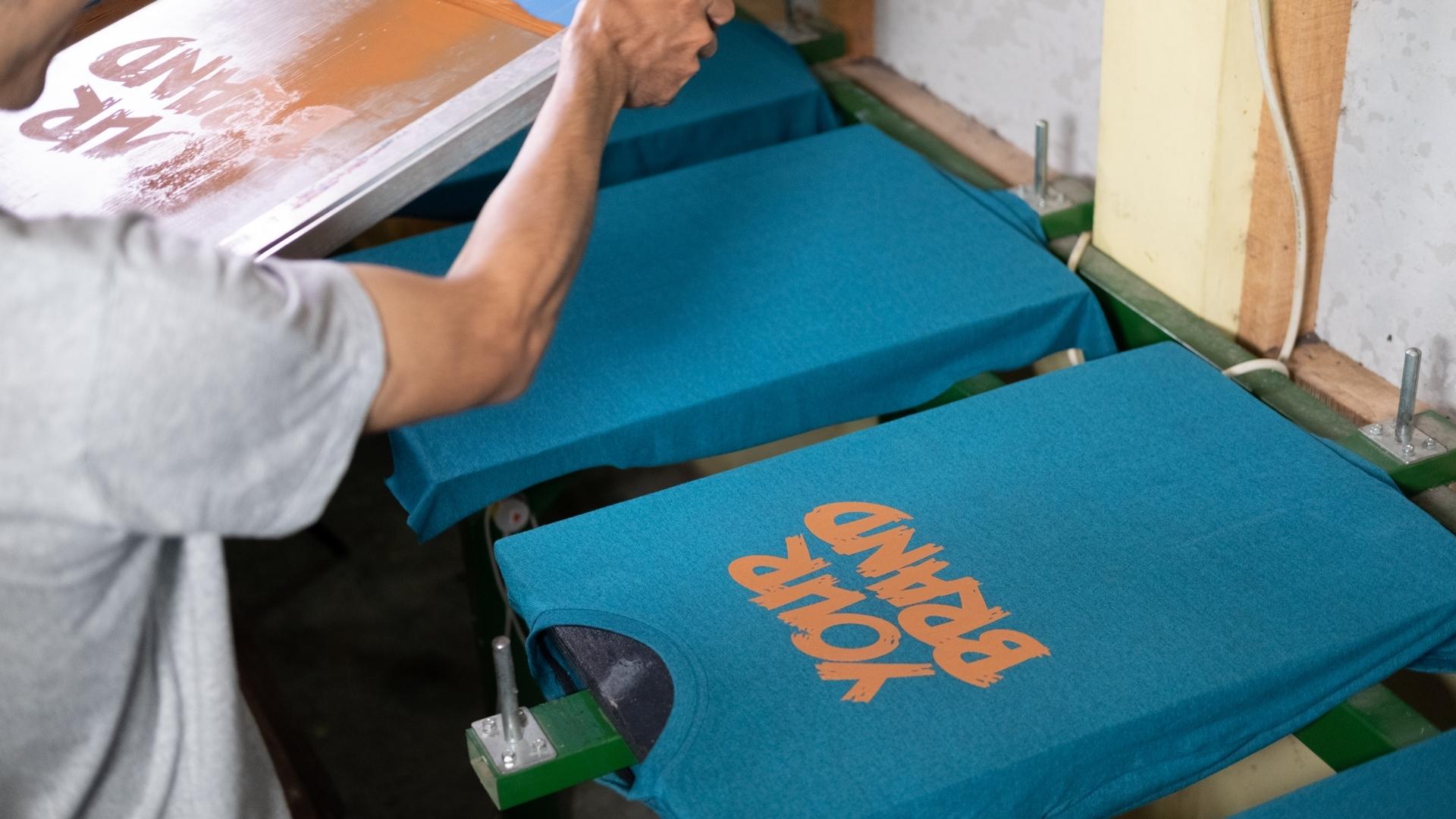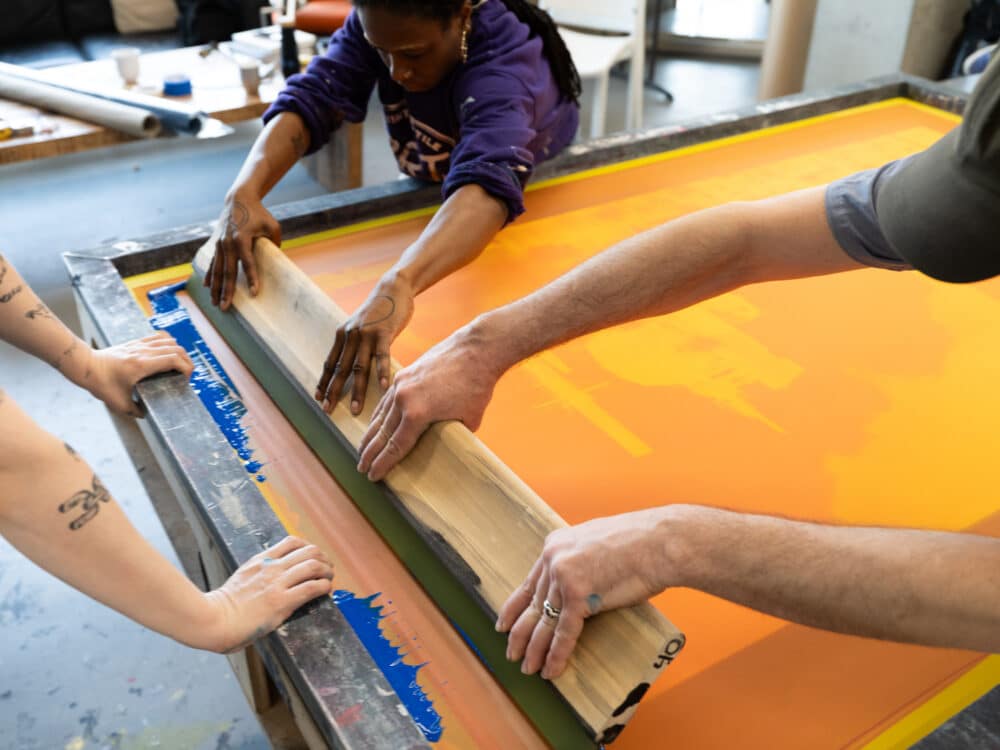ChatGPT said: Easy process to ordering with 10:9 Design Abilene
Wiki Article
The Essential Guide to Comprehending Screen Printing and Its Versatile Uses
Screen printing has an abundant background that goes back to old times, advancing right into an advanced technique used across various industries today. This guide discovers the details of the screen printing process, detailing its applications in fashion, marketing, and home décor - 10:9 Design Screen Printing Texas. Understanding these basics can open up creative possibility for both industrial and artistic projects. The adhering to sections will certainly expose necessary ideas and techniques to boost one's screen printing venturesThe History of Screen Printing
Although screen printing has origins that trace back centuries, its advancement reflects the artistic and technical developments of various societies. Coming from ancient China, the strategy was initially made use of for embellishing fabrics and later spread to Japan, where it came to be important to Ukiyo-e woodblock printing. The approach shifted to Europe in the 18th century, where it got appeal amongst artisans and industrial printers. The development of photo emulsion in the 20th century transformed screen printing, enabling even more complex layouts and greater effectiveness. Musicians like Andy Warhol further pushed its appeal, using the medium to produce renowned works that mixed commercialism and great art. By the late 20th century, screen printing had actually established itself as a versatile method, used in style, marketing, and great art. Today, it remains to advance, integrating digital technology and expanding its applications throughout various industries.The Screen Printing Refine Explained
Screen printing transforms creative visions right into tangible designs via a collection of specific actions. An image is created and then moved onto a screen, commonly made of great mesh textile stretched over a structure. A light-sensitive solution is related to the screen, which is revealed to light, solidifying in areas not covered by the picture. After rinsing the unhardened emulsion, a stencil is created.Next off, the screen is put over the substrate, whether it be fabric, paper, or an additional product. Ink is then pressed via the open locations of the stencil using a squeegee, depositing the layout onto the substratum below. This process can be duplicated for numerous colors, needing separate displays for each and every color. Lastly, the printed thing is treated utilizing warm to guarantee the ink sticks properly, causing a resilient, dynamic design all set for usage.
Sorts Of Screen Printing Techniques

Furthermore, specialty techniques, such as discharge screen printing, remove color from the textile to produce softer prints, while foil screen printing uses metal aluminum foil to accomplish a shiny coating (10:9 Design LLC Company). Each technique supplies unique qualities, dealing with numerous creative needs and production scales, inevitably expanding the possibilities within the screen printing domain name
Applications of Screen Printing in Different Industries

Furthermore, the signage and advertising fields use screen printing for creating attractive display screens and banners. This technique permits bold shades and complex designs that record interest. In electronic devices, screen printing is utilized for using conductive inks to circuit card, important for part links. The home decoration sector accepts screen printing to generate unique layouts on textiles and wall art. Overall, screen printing works as a crucial device throughout varied fields, improving products with customized and aesthetically appealing graphics.
Tips for Effective Screen Printing Projects
While carrying out a screen printing project, mindful attention to information can considerably improve the last result. Selecting high-quality materials is vital; this includes the screen, inks, and substrates. Utilizing suitable mesh counts can affect ink deposition and detail resolution. Preparation is just as important; thorough cleaning of screens and correct direct exposure times guarantee crisp prints.Next, accurate registration is essential for multi-color prints. Utilizing alignment tools can help achieve accurate layering. Furthermore, screening prints on scrap materials prior to manufacturing helps identify prospective problems without losing sources.

Regularly Asked Inquiries
What Materials Are Finest for Screen Printing on Fabric?
Cotton and polyester blends are suitable for screen printing on fabric as a result of their resilience and ink absorption. In addition, specialty textiles like silk or canvas can produce distinct appearances and surfaces, boosting the overall style top quality.How Do I Tidy and Maintain Screen Printing Equipment?
To clean up and keep screen printing equipment, one ought to routinely wash screens with proper solvents, evaluate mops for wear, lubricate moving parts, and shop all items in a dry, dust-free environment poster signs printing to prolong their lifespan.What Are the Environmental Impacts of Screen Printing?
Screen printing can have significant ecological impacts, including chemical waste from inks and solvents, water use throughout cleansing procedures, and power usage. Lasting methods and environmentally friendly materials are necessary for decreasing these adverse results.Can Screen Printing Be Done in the house Successfully?
Screen printing can be successfully done at home with the ideal materials and techniques. Hobbyists can develop top quality prints, though success relies on their ability level, equipment, and understanding of the procedure involved.
What Are the Expenses Connected With Beginning a Screen Printing Company?

Beginning a screen printing business entails costs for devices, materials, and work space. Preliminary expenses generally vary from a couple of hundred to numerous thousand bucks, depending on the range, high quality of machinery, and wanted production ability.
Screen printing has an abundant history that dates back to old times, evolving into an innovative method made use of across different industries today. One more technique, rotary screen printing, uses cylindrical screens, facilitating constant printing on textile rolls, thus boosting efficiency for massive manufacturings. Additionally, specialized techniques, such as discharge screen printing, eliminate color from the fabric to develop softer prints, while aluminum foil screen printing uses metallic aluminum foil to attain a shiny finish. In the fashion market, screen printing is extensively used to create lively styles on garments, enabling brands to showcase their distinct designs. Cotton and polyester blends are ideal for screen printing on material due to their sturdiness and ink absorption.
Report this wiki page